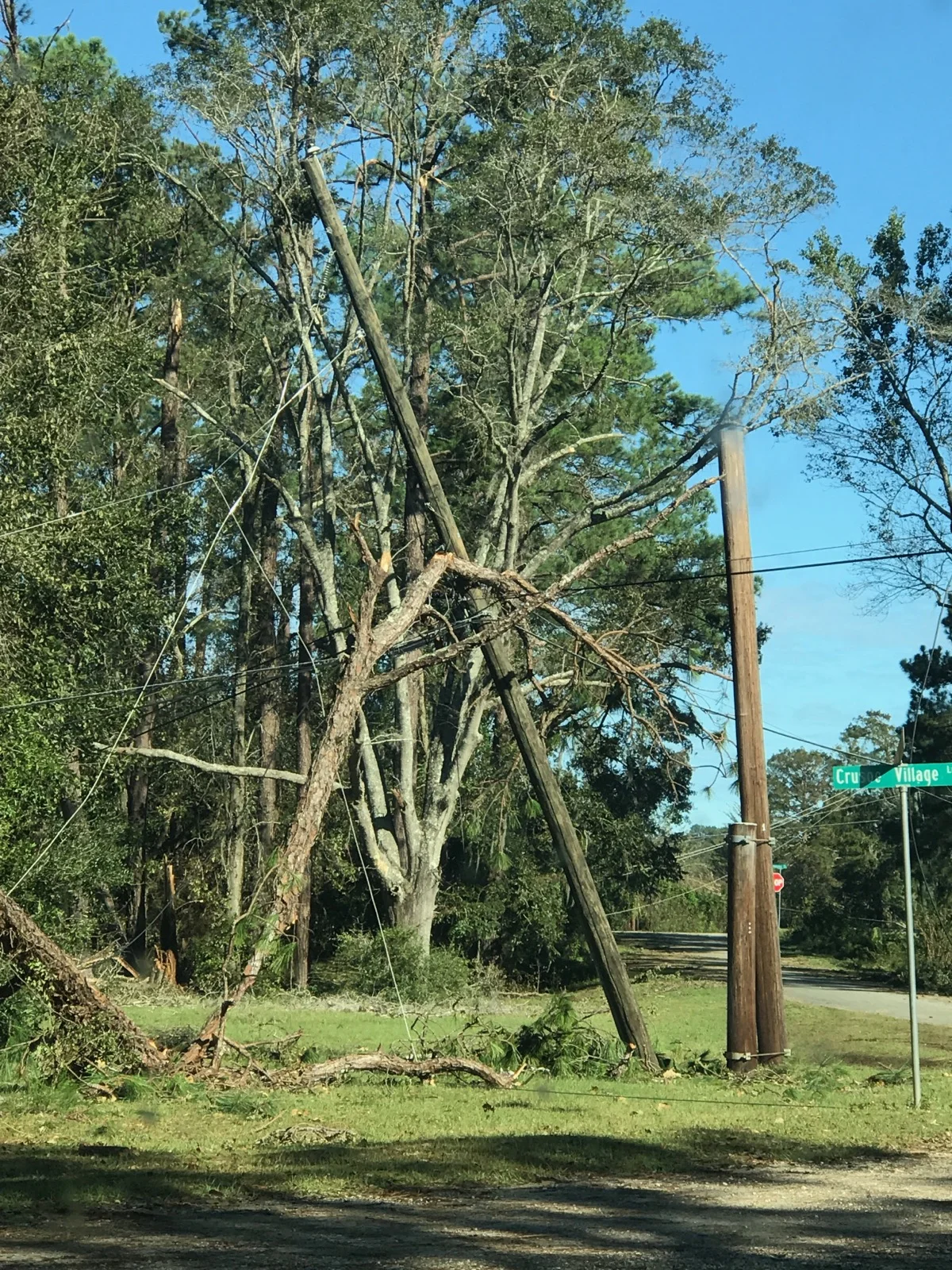Pitching in on Hurricane Michael Storm Assessment
Scenes like this were commonplace in southwest Georgia following Hurricane Michael.
By Beth Hutchinson, McLean Engineering Staff
As I was doing Hurricane Michael storm assessment, it occurred to me how great it was to see every level of our office pitching in and working with power crews to help the people affected by the storm get back to a normal life. My own family was without power for over a week and even with generators, it's still hard to carry on your daily functions.
The McLean staff started the storm damage assessment on Thursday, October 11 and worked through the following Thursday, October 18. Everyone worked every day they could; the days were long and sometimes boring, but every person was a trouper. We reported for duty in Albany at 6:00 a.m. most mornings and worked past sundown every night. A few employees had to rotate off to attend meetings or take care of business at the office, but Todd Taylor was out there most every morning with us and was the last to leave. The final day we actually had one team of two in Albany and the rest were in Bainbridge.
From McLean Engineering Company:
Todd Taylor
Reese Grantham
Chad David
Greg Gladin
Beth Hutchinson
Clint Chafin
Sean Burch
Casey Hubbard
Sarah Wells
Jeffrey Durrence
Brad Taylor
Colby Presley
Randy Carr
Dalton Smith
Charles Jenkins
Charlie Smith
Will McQueen
Marisa Taylor
Danny Rodgers
We also had teams at Middle GA EMC and Sumter (GA) EMC:
Donald Carver
Lamar Hill
McLean’s Jeffrey Durrence speaks with residents affected by the storm.
I am always hesitant to list people in case I have left someone off. But this was truly an entire team effort. It also could not have happened without those who had to stay at the office to keep things up and running there as well as Sean Knowles, who coordinated the teams with Todd and took care of many of the other tasks that the rest of the staff couldn't get to over the week.
At the beginning of the week our tasks included visiting areas that were hit hard by the storm, marking on the maps the areas that needed assistance from the power company and indicating what type of issue to prepare for. As part of that process we assessed the damage, determined what might be causing a power outage, such as a tree on the line or downed equipment. A big part of our job was to look for potential hazards in an area such as a "live" power line down or resting on something.
As the week went on, an influx of utility workers came in from many other states, so our duties shifted more to that of running supplies and meals to the workers. Also, we would go to a certain location and see if there was an issue and how to best resolve it as to restore the power.
Near the end of our tour we segued into more of "riding the lines" to look for any items left by the linemen and to check on anyone that should’ve had power at that point but did not for some reason. All the customers that I met were very gracious and understanding of the time frame.
I personally learned so much from the engineers I worked with about the inner workings of the power system and how all the parts work together. Events like these really show us how much of a team effort is required!

